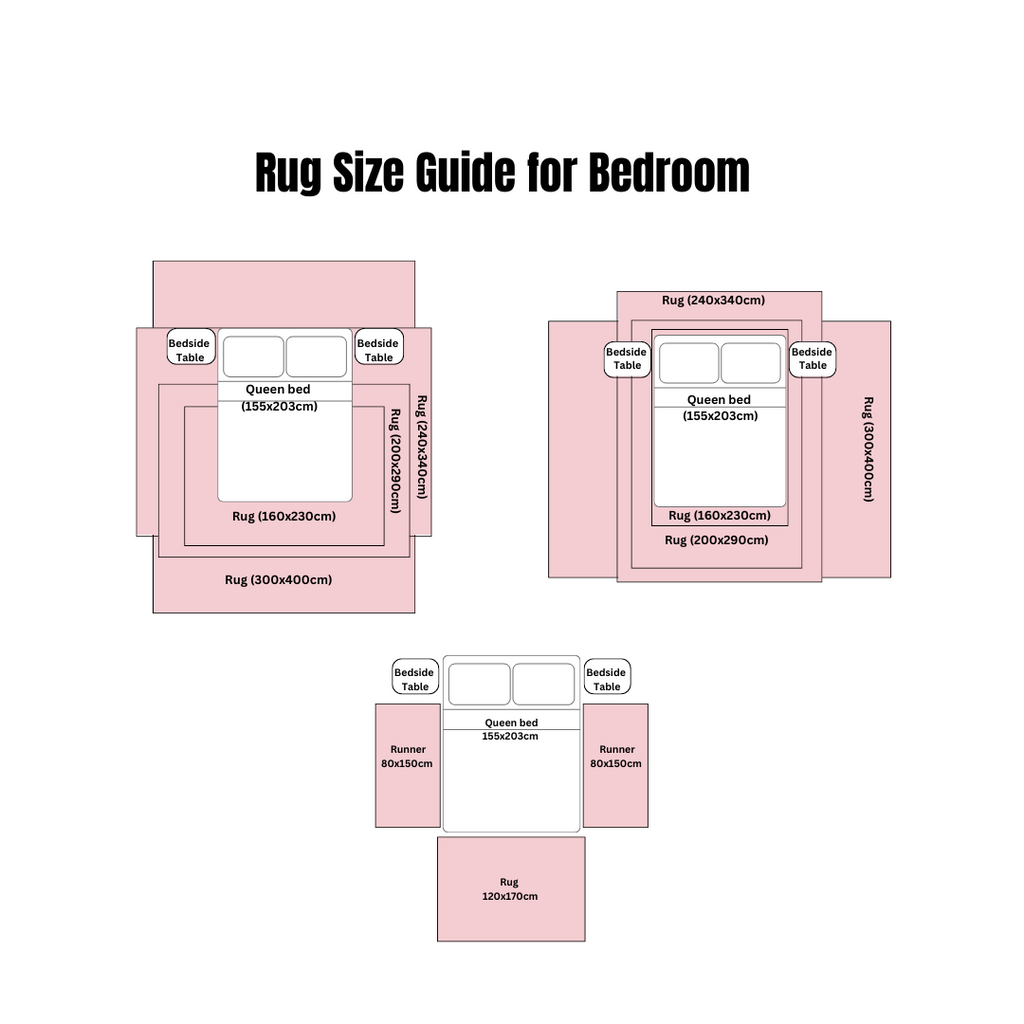5 Reasons Why Hybrid Flooring is a Good Idea for Your Home in 2024
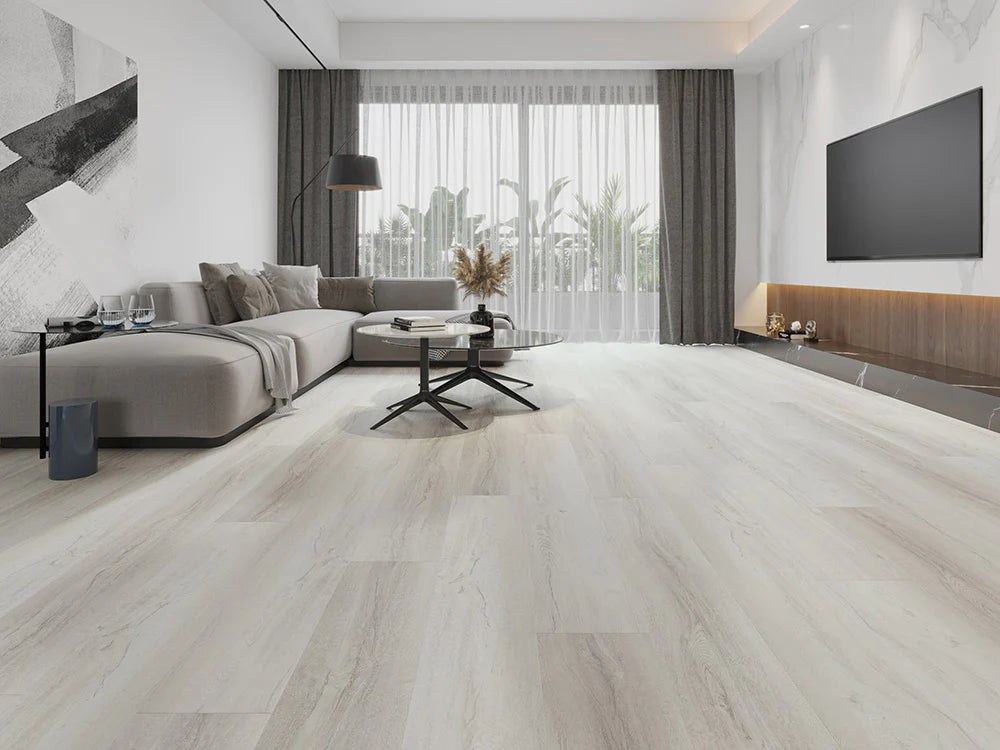
1. Unmatched Durability: Built to Last
One of the key factors contributing to the durability of hybrid flooring is its multi-layered construction. The top layer, often referred to as the wear layer, is designed to resist scratches, stains, and fading, ensuring the floor remains in pristine condition for years. This aspect is frequently highlighted in hybrid flooring reviews, with many users attesting to its ability to look as good as new even in high-traffic areas. The wear layer's protective quality is a crucial consideration for those wondering, "How long does hybrid flooring last?" With proper care, hybrid flooring can last for decades, offering an excellent return on investment.
Another question that may pop up is "Is hybrid flooring safe?". Hybrid flooring is typically made from materials that do not emit harmful VOCs (Volatile Organic Compounds), making it a safe option for indoor environments. This aspect is particularly appealing to families and those with pets, ensuring a safe and comfortable space for all occupants.
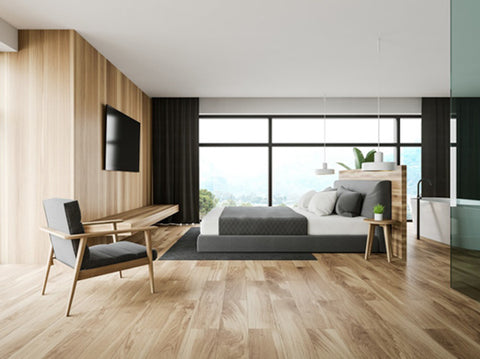
2. Waterproof and Easy to Clean: Hassle-Free Maintenance
What makes Hybrid Flooring Waterproof?
The waterproof capability of hybrid flooring is primarily due to its core composition. Unlike traditional laminate that contains a wood-based core, hybrid flooring utilizes a composite core often made from limestone, PVC, and plasticizers. This stone plastic composite (SPC) or wood plastic composite (WPC) core is inherently waterproof, meaning it does not swell, warp, or deteriorate upon exposure to moisture. This core is the heart of hybrid flooring's resilience to water damage, making it an ideal choice for areas prone to spills, humidity, or direct contact with water, such as kitchens, bathrooms, and laundry rooms.
Moreover, the manufacturing process of hybrid flooring ensures that each plank is tightly locked together with a click-lock system, further enhancing its waterproof properties. This tight locking system prevents water from seeping between planks, protecting the subfloor and ensuring the longevity of the flooring. This feature is particularly beneficial in regions with high humidity or for installations over concrete slabs that may retain moisture.
How is Hybrid Flooring easy to Maintain?
The ease of maintenance associated with hybrid flooring is another key factor contributing to its popularity. The surface of hybrid flooring is coated with a durable wear layer, which is resistant to scratches, stains, and fading. This layer not only protects the floor from daily wear and tear but also makes it incredibly easy to clean and maintain.
Routine cleaning of hybrid flooring requires only a sweep or vacuum to remove dust and debris, followed by a damp mop with a mild cleaner to keep the floor looking pristine. Unlike hardwood floors, there is no need for waxing, polishing, or refinishing. The wear layer's resistance to staining means spills can be easily wiped away without leaving marks, and its scratch resistance is especially beneficial in homes with pets or high foot traffic.
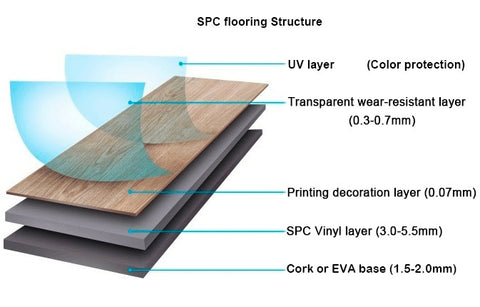
3. Aesthetic Flexibility to Match Any Decor
Mimicking Natural Materials
One of the most appealing aspects of hybrid flooring is its ability to closely replicate the look and feel of natural materials. Advanced photographic and embossing technologies enable manufacturers to create patterns and textures that are nearly indistinguishable from real hardwood, stone, or ceramic tiles. This means you can enjoy the warm, classic appearance of hardwood floors or the cool elegance of stone tiles in areas where moisture or wear would make these natural materials impractical. Whether you're aiming for the rustic charm of aged timber, the sleek sophistication of marble, or the earthy allure of slate, hybrid flooring can deliver the aesthetic without the inherent drawbacks of the natural materials.
Color and Design Options
The variety of colors and designs available in hybrid flooring collections is another factor contributing to its aesthetic versatility. From light, airy tones to deep, rich hues, hybrid flooring can complement any color scheme or interior design style. This range allows for seamless integration into any room, whether you're updating a cozy bedroom, a bustling kitchen, or a formal living area. The diversity of patterns, from subtle grains to bold textures, also enables designers and homeowners to create unique spaces that reflect their personal style and taste.
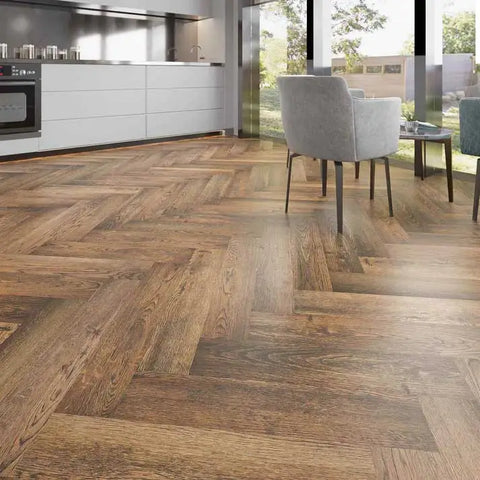
4. Comfort and Insulation: Enhancing Your Living Space
The comfort underfoot provided by hybrid flooring is a significant departure from the harder surfaces of traditional tile or hardwood floors. Thanks to its multi-layered construction, hybrid flooring has a slight give that reduces the strain on feet and joints, making it a pleasure to walk on, even for extended periods. This feature is particularly appreciated in spaces where individuals spend a lot of time standing, such as kitchens and home offices. The softer feel underfoot is a result of the core layer, which absorbs impact and provides a cushioning effect, offering a sense of warmth and comfort that is not typically associated with hard surface flooring.
Beyond the immediate comfort, hybrid flooring contributes to a home's insulation, enhancing its thermal efficiency. The composition of hybrid floors includes materials that naturally insulate, helping to keep the indoor temperature stable regardless of the season. During the colder months, this means that the floors can retain warmth, contributing to a cozier indoor environment and potentially reducing the need for additional heating. Conversely, in warmer weather, the insulating properties help keep interiors comfortably cool. This thermal efficiency can lead to energy savings, as the need for heating and cooling can be reduced, making hybrid flooring an eco-friendly option for those looking to minimize their energy consumption.
The acoustic insulation provided by hybrid flooring is another notable benefit. The dense core layer that contributes to its durability and comfort also plays a crucial role in sound absorption. This quality is particularly beneficial in multi-story homes or apartment buildings, where foot traffic and noise can easily transfer between floors. By dampening sound, hybrid flooring helps create a quieter, more serene living environment, which is invaluable in today’s often noisy world.
5. Eco-Friendly and Safe: A Responsible Choice
Sustainable Materials
Many hybrid floors are constructed using a significant proportion of recycled materials, reducing the need for virgin resources and minimizing waste. The core of hybrid flooring, whether SPC (Stone Plastic Composite) or WPC (Wood Plastic Composite), often incorporates recycled wood and plastic components. This not only repurposes materials that might otherwise end up in landfills but also decreases the demand for new raw materials. By choosing hybrid flooring, consumers can contribute to a circular economy that values the reuse and recycling of resources.
Low VOC Emissions
Volatile Organic Compounds (VOCs) are chemicals found in many building materials that can evaporate into the air, potentially causing indoor air quality issues and health problems. Hybrid flooring is engineered to be low in VOC emissions, complying with strict health and safety standards. This commitment to indoor air quality makes hybrid flooring a safe choice for homes and commercial spaces, contributing to a healthier living and working environment.
Energy-Efficient Manufacturing
The production process of hybrid flooring is designed to be more energy-efficient than that of traditional flooring options. Advanced manufacturing technologies reduce energy consumption, and by incorporating recycled materials, the energy required to source and process raw materials is further diminished. These efficiencies contribute to a reduction in the overall carbon footprint of hybrid flooring.
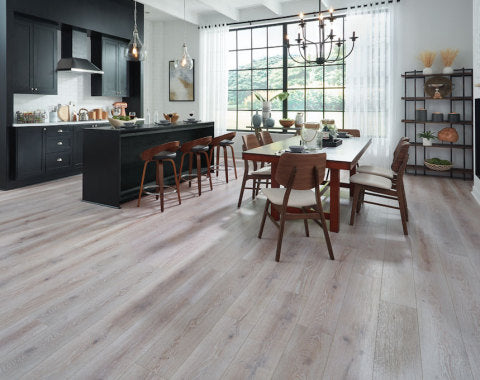
SHARE:


